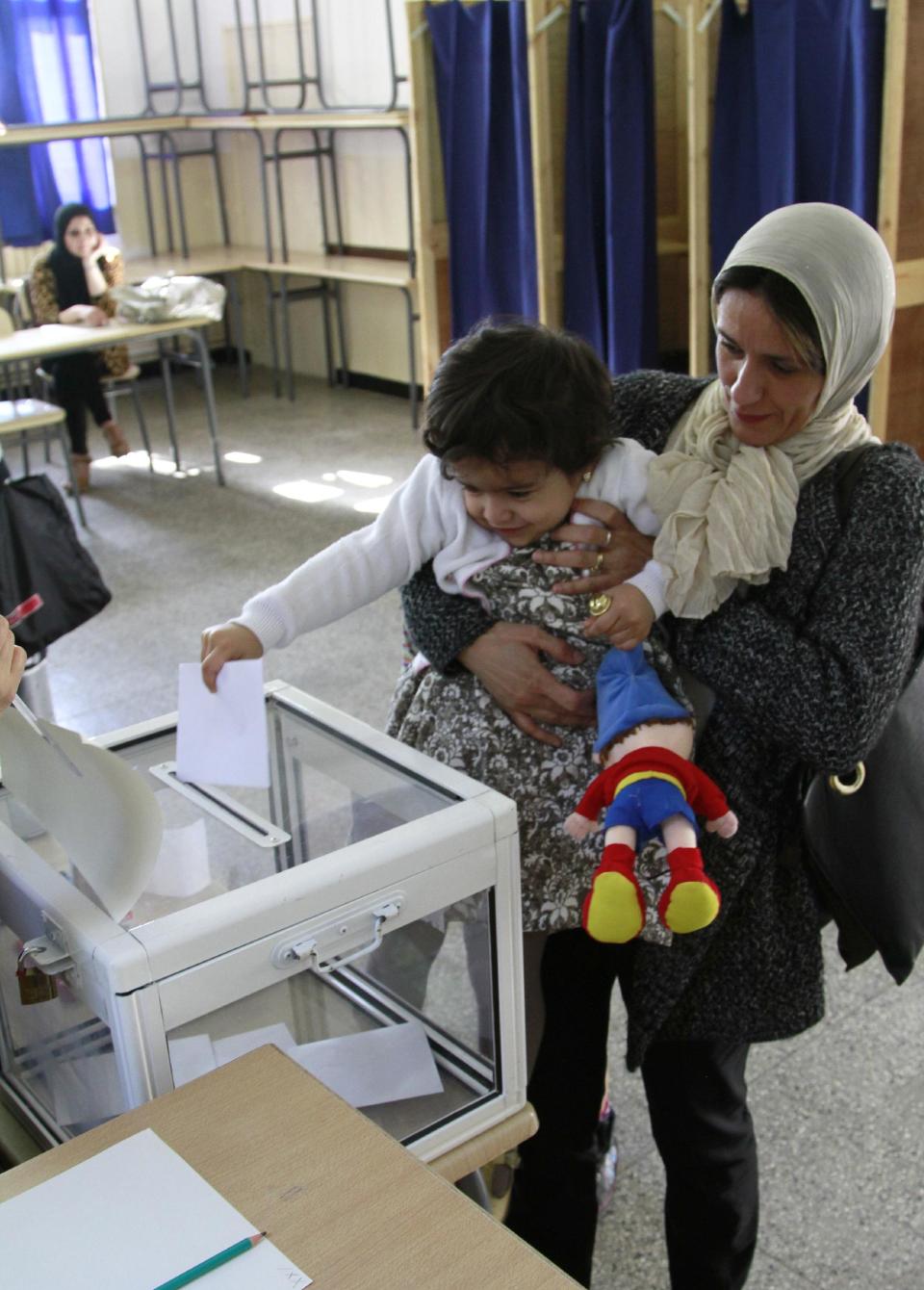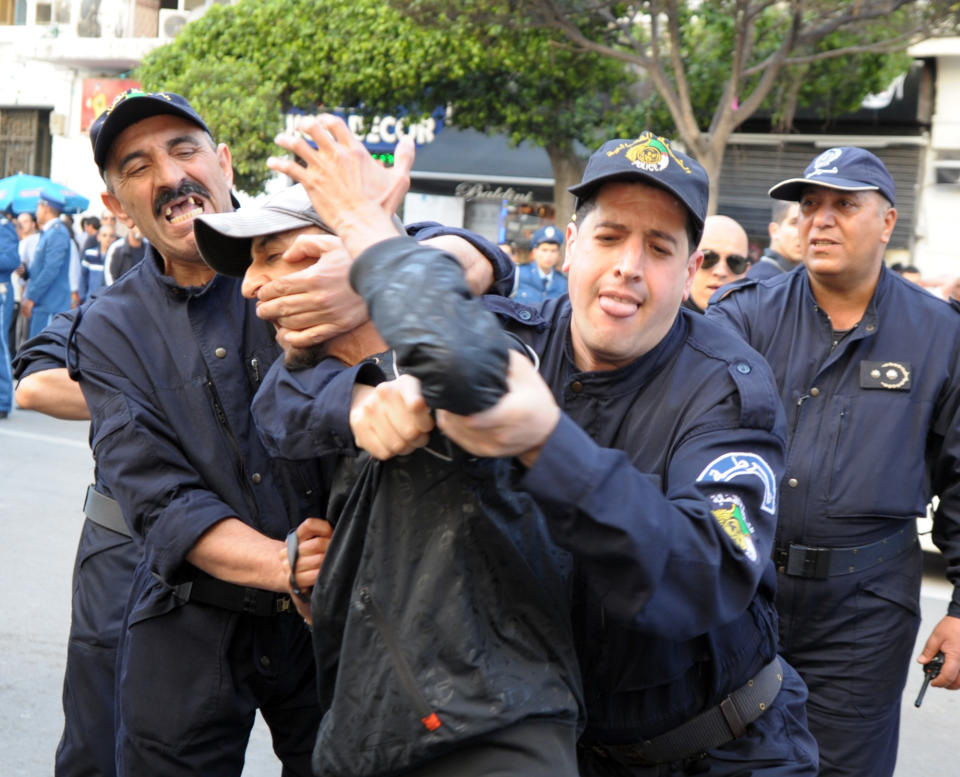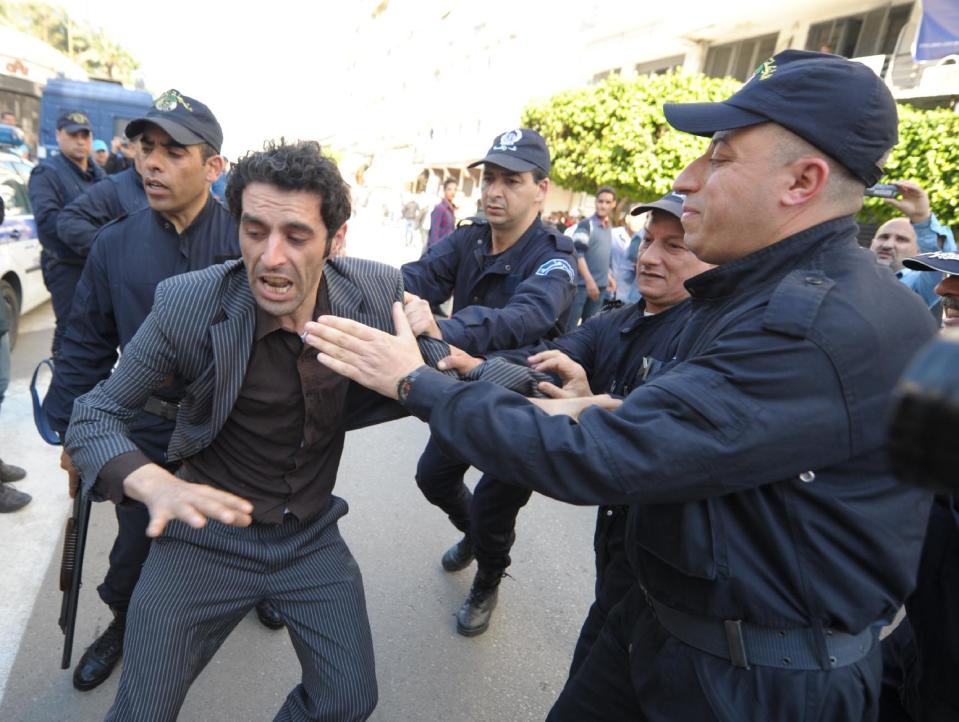Algerians trickle to polls in presidential vote
ALGIERS, Algeria (AP) — Algerians trickled into voting booths on a sunshine-drenched Thursday to elect the president of this oil-rich North African nation in an election dominated by the ailing incumbent running for a fourth term.
Despite recovering from a stroke and being entirely absent from the three-week election campaign, 77-year-old Abdelaziz Bouteflika is backed by the powerful institutions of the state and represents stability for Algerians still scarred by a civil war in the 1990s.
Many of the 23 million registered voters, especially younger ones, are not expected to turn out to vote, however. High official turnouts in past presidential elections have been greeted with widespread skepticism. The Interior Ministry announced a participation rate of 24 percent by early afternoon, which they said was twice that of 2004.
"I can't say how many of my friends will vote," said retiree Rachid Bahriz after voting in a stately downtown high school in the capital Algiers. "Most were not very enthusiastic."
Those that were voting emphasized the importance of stability and continuity — key issues for those who survived Algeria's decade-long civil war against radical Islamists that left 200,000 dead.
"Young people don't vote, but people my age vote because they remember the dark times and they know what's important," said Nabil Damous, a 41 year-old man voting in the immense Abdel Kader high school, formerly a convent, on the edge of the low-income Bab el-Oued neighborhood. "People who don't vote don't want this country to move forward."
Sonia Izem, a middle-aged woman in a dark headscarf, said she was voting for Bouteflika because she, too, remembered when Bab el-Oued was a battleground between security forces and Islamists and because she felt the rampant corruption in the country would be less during the fourth term.
"The people around him have already stolen a lot and they have nearly filled their sack and they won't need to steal very much in the next term," she said as she entered the nearly empty school around midday. "If we bring in someone new, they will have to start stealing all over again."
Bouteflika has made limited appearances on television since his stroke last year and has clear difficulty speaking and standing.
Algerian state television showed him being wheeled into his traditional polling station to vote in the morning. He smiled but did not speak.
While Algeria escaped the pro-democracy uprisings of the Arab Spring, frustrated youth stage thousands of small demonstrations every year over the lack of jobs, opportunities and housing.
Most problems have been addressed by spending the country's impressive oil wealth but resources are dwindling and soon the government may have to pursue a different approach to meet the people's needs.
The government said 186,000 police have been mobilized to protect the polls and there was a heavy security presence in Algiers on Thursday. A small demonstration protesting the president running for a fourth term was quickly dispersed in downtown.
Of the five candidates running against Bouteflika, his former prime minister, Ali Benflis, has mounted the most vigorous campaign, though it remains to be seen if he can overcome the widespread skepticism in the country.
He has warned that he has placed observers in each of the 60,000 polling stations across the country and he and his supporters will not be silent if there is fraud.
Bouteflika won re-election in 2009 with 90 percent of the vote — a figure believed to be inflated by local and international observers.









